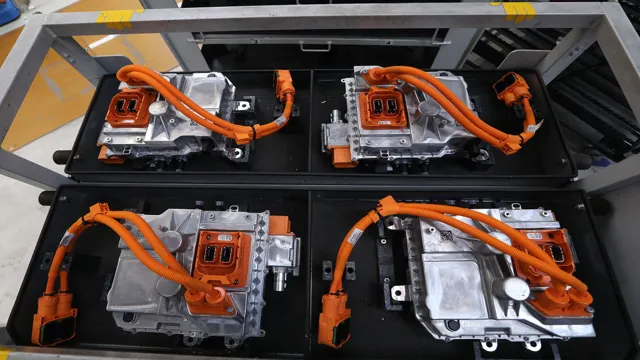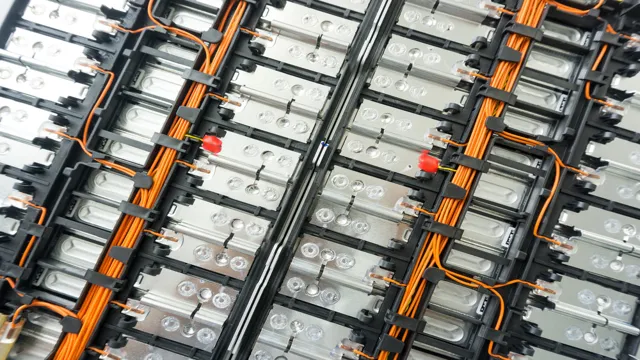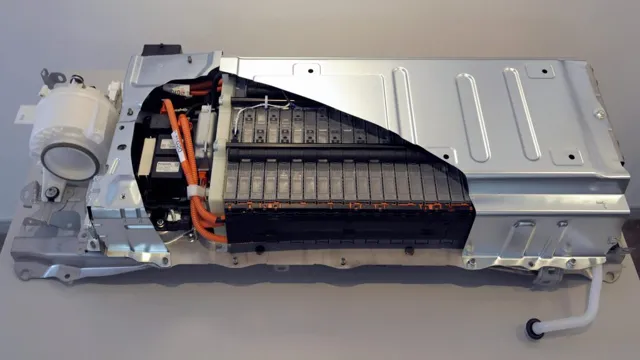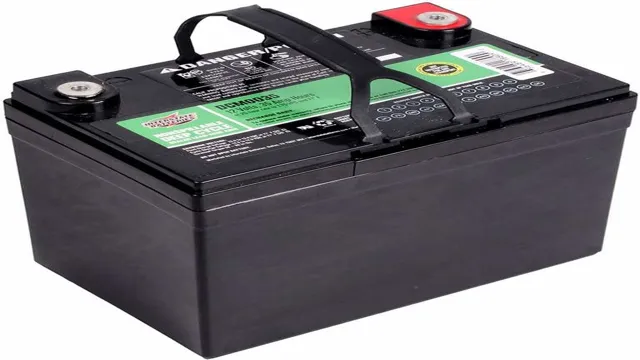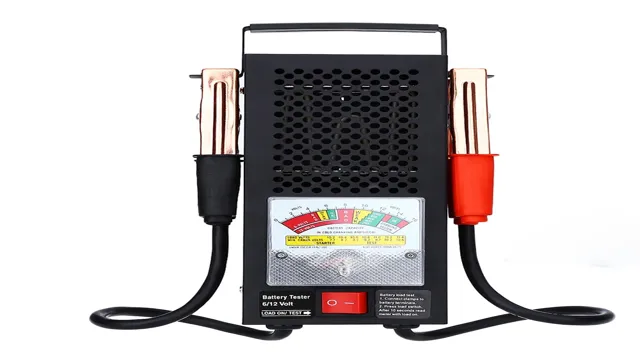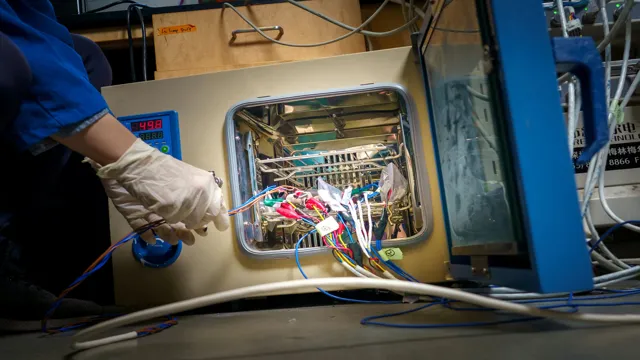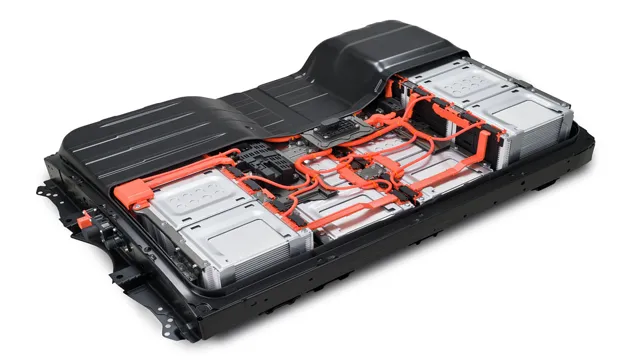Maximizing the Battery Life of Your Electric Car Conversion: Tips and Tricks
Electric cars are becoming increasingly popular, and for good reason. Not only do they reduce carbon emissions and help protect the environment, but they can be incredibly cost-effective as well. However, many people are unsure about the battery life of an electric car, and this is especially true for those interested in converting their gas-guzzling vehicle to an electric one.
When it comes to electric car conversion battery life, there are a few key factors to consider. First and foremost, the quality of the battery itself will play a crucial role in determining its lifespan. A high-quality battery will typically last longer and require less maintenance than a lower-quality one.
However, other factors like usage patterns and driving habits can also impact battery life. Despite these potential challenges, many people have successfully converted their cars to electric and enjoyed long-lasting battery life. In fact, electric car batteries are designed to last for many years, with some even lasting up to a decade or more.
So if you’re considering an electric car conversion, don’t let concerns about battery life hold you back. With the right battery and a bit of care, you can enjoy the many benefits of electric driving for years to come.
What is the Battery Life of an Electric Car Conversion?
When it comes to electric car conversions, one of the most common concerns is the battery life. The truth is, the lifespan of an electric car conversion battery depends on various factors, including the type of battery used, driving habits, and environmental conditions. Lithium-ion batteries are the most common type of battery used in electric car conversions, and they typically last around 8-10 years or 100,000 miles.
However, if the battery is discharged and charged frequently or exposed to extreme temperatures, its lifespan can be reduced. It’s important to take care of the battery by avoiding deep discharges and keeping it at a moderate temperature to maximize its lifespan. With proper maintenance, the battery in an electric car conversion can last for many years, providing reliable and cost-effective transportation for the owner.
Average lifespan of conversion batteries
When it comes to the lifespan of electric car conversion batteries, there are many factors to consider. On average, conversion batteries can last anywhere from five to ten years, depending on how frequently they are used and how well they are maintained. It’s important to note that the battery’s lifespan also depends on the type of battery used and the conditions in which the car is driven.
For instance, extreme temperatures can shorten the lifespan of a battery. However, with proper care and maintenance, electric car conversion batteries can provide reliable power for years to come. So, if you’re considering converting your car to electric, be sure to factor in the cost of replacement batteries in the future.
Don’t fret though, as innovations in battery technology continue to improve, we may even see longer battery lives in the near future.
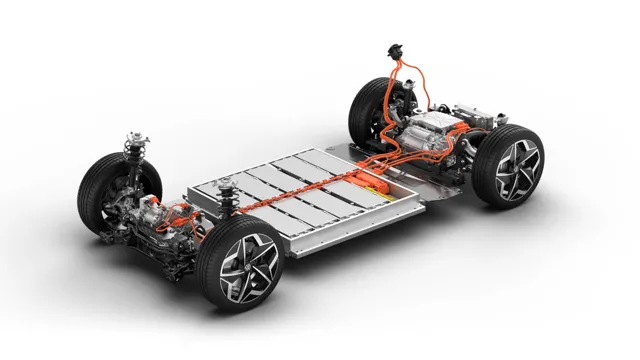
Factors that affect conversion battery life
Battery Life of an Electric Car Conversion The battery life of an electric car conversion depends on several factors that can affect its functionality and efficiency. One of the most crucial factors is the type and quality of batteries used in the conversion process. Lithium-ion batteries are considered the ideal choice for electric car conversions as they are highly efficient, lightweight, and have an extended lifespan.
Additionally, driving style and driving conditions can also play a significant role in the battery life of an electric car conversion. Frequent acceleration, deceleration, and high-speed driving can lead to increased battery drain, reducing the overall lifespan of the battery. On the other hand, driving on smooth roads and maintaining a consistent speed can help extend the battery life.
Finally, the age of the battery, its capacity, and maintenance practices can also affect the battery life of an electric car conversion. Regular battery maintenance, such as checking the charge level, cleaning the terminals, and ensuring proper ventilation, can help extend the overall lifespan of the battery.
How to Increase the Battery Life of an Electric Car Conversion?
Electric car conversions are popular alternatives to gas-powered vehicles, but they do require some maintenance to ensure a long battery life. To increase the battery life of an electric car conversion, the most important thing is to avoid completely draining the battery. Keep it charged at all times, and try not to let it dip below 20% top off as soon as possible.
Regular maintenance of the battery is also crucial. This includes checking the fluid levels, regularly testing the battery’s state of charge, and ensuring that it’s equalized periodically. Additionally, being gentle on acceleration and braking can help extend the battery’s life.
By gradually accelerating, you reduce the strain on the battery and are less likely to consume all of its energy too quickly. Similarly, regenerative braking helps to recharge the battery while slowing down the vehicle. With proper maintenance and driving habits, an electric car conversion can provide reliable transportation for many years to come.
Maintenance tips for conversion batteries
If you want to maximize the life of your electric car conversion battery, there are a few things you can do to help keep it in good condition for as long as possible. Firstly, make sure to regularly check and maintain the fluid levels in the battery, as it can have a significant impact on performance and longevity. Additionally, try to avoid deep discharging the battery whenever possible, as this can cause irreparable damage to the cells.
Instead, aim to charge the battery before it gets too low, and avoid leaving it plugged in for extended periods of time. Finally, be sure to check the battery for any signs of damage or wear, and address any issues as soon as possible to prevent them from getting worse. By following these few simple tips, you can help ensure that your conversion battery lasts as long as possible, keeping your electric car running smoothly and efficiently.
Upgrading battery technology for longer life
Electric car conversions are becoming more and more popular as people become increasingly concerned about the environment and their carbon footprint. However, one of the biggest challenges with electric car conversions is the battery life. Fortunately, there are several ways to increase the battery life of an electric car conversion.
One option is to upgrade the battery technology. Lithium-ion batteries are a popular option because they have a longer lifespan than traditional lead-acid batteries, and they are also more efficient. Another option is to use regenerative braking, which helps to charge the battery while braking.
Additionally, reducing the weight of the vehicle can also help to extend the battery life. By using lighter materials for the body and interior, you can reduce the energy needed to move the vehicle, which can lead to longer battery life. With these simple upgrades, you can get the most out of your electric car conversion and enjoy long, efficient rides without worrying about running out of power.
What to Consider When Choosing a Conversion Battery?
When converting your car to electric, one of the most important things to consider is the battery life. After all, the battery is what powers your electric car, so you want to make sure you choose a conversion battery that can provide enough range for your needs. There are a few things to consider when selecting a conversion battery, such as the chemistry of the battery, the capacity and voltage of the battery, and the overall quality of the battery.
For instance, lithium-ion batteries are often the best choice due to their high energy density and relatively low cost. Additionally, you’ll want to make sure the battery has a high enough capacity to provide the range you need, while also ensuring that the voltage is compatible with your car’s electrical system. Ultimately, choosing the right conversion battery is crucial for ensuring a successful electric car conversion and maximizing your driving experience.
Capacity and range
When it comes to choosing a conversion battery, it’s important to consider both capacity and range. Capacity refers to the amount of energy that the battery can store, while range refers to how far you can travel on a single charge. Generally, a higher capacity battery will give you a longer range, but there are other factors at play, such as the weight of your vehicle and your driving habits.
It’s also important to think about the type of battery chemistry that will work best for your needs. Lithium-ion batteries tend to be the most popular choice because they offer a good balance of cost, performance, and safety. However, there are also other chemistries to consider, such as lead-acid or nickel-metal hydride.
Ultimately, the right battery for you will depend on your specific circumstances, so it’s important to do your research and consult with a professional to determine the best option for your needs.
Cost and warranty
When considering a battery conversion for your electric vehicle, there are a few important factors to keep in mind. First and foremost, cost is a major consideration. It’s important to find a conversion battery that fits within your budget, but also provides reliable long-term performance.
Additionally, be sure to consider the warranty that comes with your conversion battery. A strong warranty can give you peace of mind in case anything goes wrong with your battery down the line. Overall, it’s important to do your research and choose a conversion battery that meets your specific needs and budget.
By considering both cost and warranty, you can find the perfect battery to power your electric vehicle for years to come.
Conclusion
In the expanding world of electric car conversions and sustainable transportation, the battery life is a crucial factor in ensuring long-term success. And just like any relationship, the key to a healthy and long-lasting battery life lies in constant attention, care, and maintenance. With a little TLC, your electric car battery can live happily ever after, and who knows, maybe even outlast your love life!”
FAQs
How long can an electric car conversion battery last?
The lifespan of an electric car conversion battery can vary depending on factors such as usage, maintenance, and the type of battery installed. On average, these batteries can last anywhere from 5 to 15 years.
Can I replace the battery in an electric car conversion?
Yes, the battery in an electric car conversion can be replaced. However, it is important to ensure that the new battery is compatible with the vehicle’s electric system and that it is installed correctly.
What type of batteries are used in electric car conversions?
Electric car conversions can use different types of batteries, including lead-acid batteries, lithium-ion batteries, and nickel-metal hydride batteries. Each type has its own advantages and disadvantages in terms of cost, weight, and performance.
How much does it cost to replace the battery in an electric car conversion?
The cost of replacing the battery in an electric car conversion can vary depending on the type of battery used, the size of the battery, and the installation fees. On average, a replacement battery can cost anywhere from $1,000 to $5,000.
